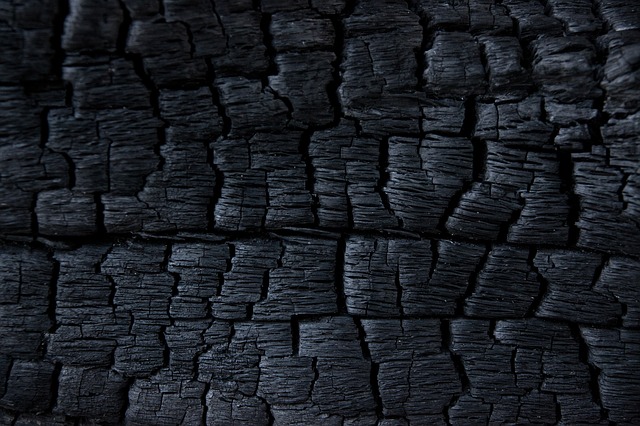
The Story
Rivka and Karen, high school classmates from Chicago, had been excited for months. Almost every day they chatted about camp. They almost screamed with glee, when they found out that they had been placed in the same bunk together.
It was now the first day of camp. They had just arrived with the other campers and were greeted by the camp staff with a special barbeque dinner. After eating their fill of delicious hot dogs and hamburgers, the girls returned to their bunk to prepare for their night activity – a hike in the woods. Rivka began searching for flashlight and hooded sweatshirt. As she dressed she glanced out the back window and was surprised to see Karen outside eating a chocolate bar – a chalavi chocolate bar. Rivka took a moment to think. Perhaps they had made a parve version of chocolate bar? No. Rivka often bought the same chocolate bar with her allowance money and there definitely wasn’t a parve version. Perhaps Karen did not wait as long as Rivka between basar and chalav? No, that also wasn’t possible. They had just finished their last hamburger’s 15 minutes ago. Rivka had visited Karen’s home frequently, and knew that the family waited over five hours between basar and chalav. It seemed that there was no other possibility other than the fact that Karen had knowingly committed an aveira.
Rivka thought to herself “What should I do? Perhaps I should speak to Karen about it. She is my friend, and a friend shouldn’t let another friend make mistakes. Other other hand, she will be probably become embarrassed if I discuss it with her. Embarrassing another person can also be an aveira. She may even become angry with me and stop being my friend!”
What should Rivka do?
Discussion
Q: What is the connection between our story and the parsha?
A: The answer is tochacha, which means to tell someone when they have done something wrong. Yosef gave his brothers tochacha about the wrong way that they had treated him when they betrayed him and sent him to Egypt as a slave.
Q: Can you think of two reasons why it is important to give tochacha?
A: 1) If we care about our fellow Jew, then we shouldn’t let them do something dangerous. When someone commits an aveira it causes great danger to their neshama. Just as we would surely stop a friend from stepping too close to a tall cliff, we should try to stop our friend from committing an aveira. This relates to the commandment of lo ta’amod al dam rei’acha (“standing on another’s blood”, Minchas Chinuch (239:6).
2) Hashem judges us as a nation together. When another Jew commits an aveira, all Jews suffer the punishment. In the sefer, the Tana de’bei Eliyahu Rabbah (chap. 11) a mashal is given that all Jews on are on a ship together. If someone makes a hole in their room, then the water that rushes in will sink the whole ship and everyone will be in danger.
Q: When should we not give tochacha?
A: If we know for certain that the person will not listen to our advice. They will not change their ways and will keep performing the aviera intentionally (Mishnah Berurah 608:3; see Teshuvos Rashi 40). In our generation, where so many Jews have been raised without a religious education, it may be better for them to sin accidentally, rather than sin knowing that it is wrong (Mishnah Berurah Biur Halachah, s.v. mochin). We have to be careful in such situations and should ask the advice of a Rav.
Q: If we do give someone tochacha, can you think of how it needs to be done?
A: We have to be careful to minimize any embarrassment (Rambam, De’os 6:7). It should be done in a private place. We must speak in a gentle friendly way, without being angry or condescending. If someone is worried that they may not be able to do this properly, then it is better not to do tochacha at all (Rav Chaim of Volozin, Keser Rosh 143).
Back to our Story
Rivka did not say anything to Karen immediately. She took time to carefully think about the situation, and to prepare her words carefully. She waited for the right time, when they were alone together.
“Karen, you are a great friend and I think you are a wonderful person. But I’m am a bit confused because, by chance, I saw you eating a chalavi chocolate bar right after our meat dinner.”
“You’re right” confessed Karen with a blush. “I had a moment of weakness. I had been craving that chocolate bar all day and I guess I gave in to my yetzer harah.”
Rivka patted Karen on the shoulder. “Well I certainly have given in to my yetzer harah too in the past. I think we need to help each other, as friends, to fight against our urges. Let’s promise, blee neder, that the next time either of us has the urge to do something wrong, that we’ll tell each other about it, so that we can help each other resist the temptation.”
“Deal” smiled Karen.
“Great” said Rivka. “I now let’s go back to bunk and share a very tasty parve treat that I’ve been saving for the right moment”.
(Written by Josh and Tammy Kruger, in collaboration with Rabbi Yehoshua Pfeffer of the Institue for Dayanim, and based his his article: http://www.dinonline.org/2012/01/06/halachos-of-rebuke/)


